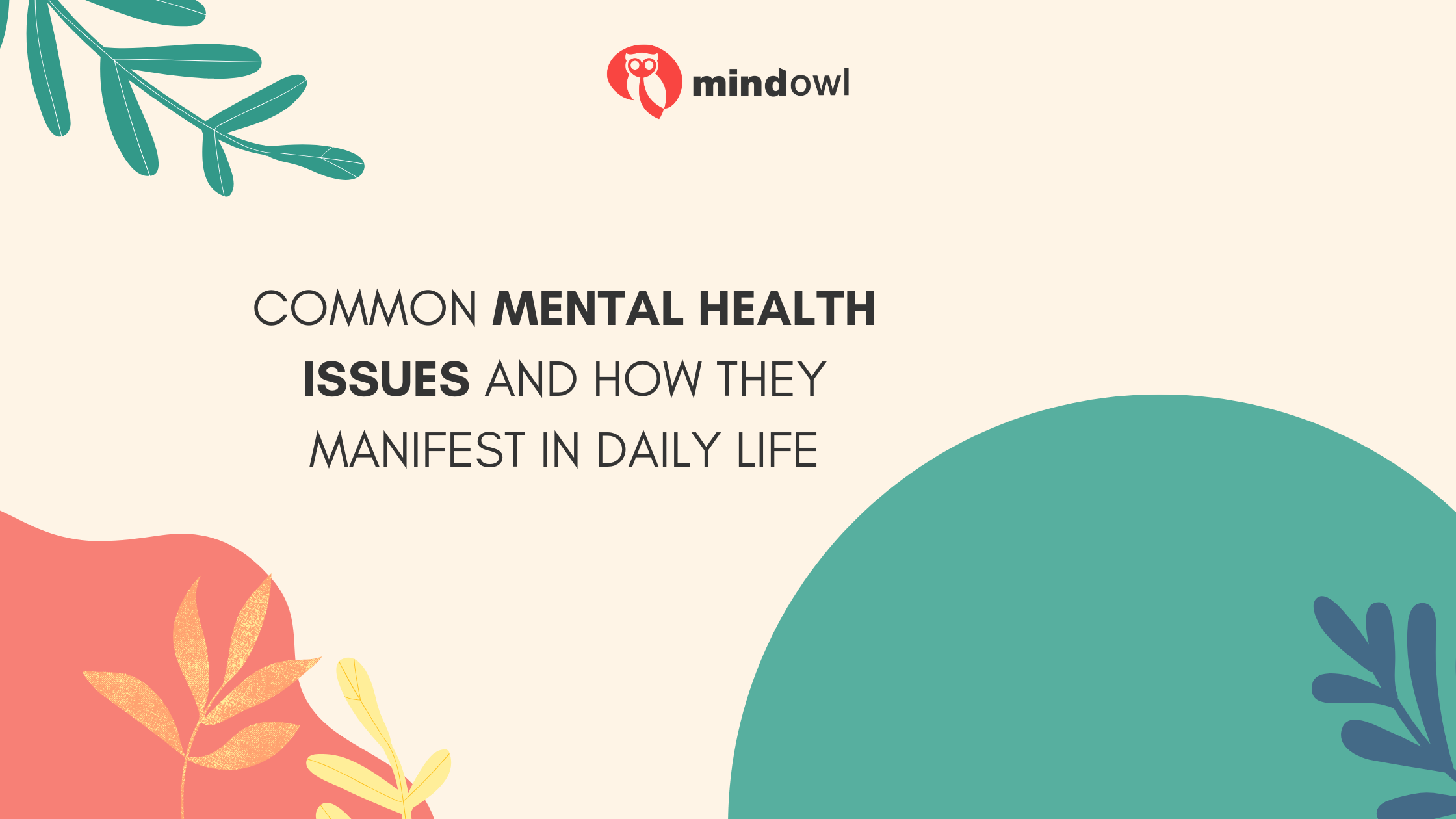Many people experience mental health issues at some point in their lives, but the way these conditions manifest can vary widely. For some, mental health challenges may be obvious, while for others, they may be subtle or easy to overlook. Regardless of how they show up, these issues can affect your ability to function in daily life, impacting work, relationships, and personal activities. By understanding how common mental health conditions manifest, you can better recognize signs in yourself or those around you. Early recognition and intervention are key to managing these challenges and maintaining a healthy, balanced life.

Depression: More Than Just Feeling Sad
Depression can manifest as difficulty concentrating, making decisions, or even getting out of bed in the morning. You might notice a significant decrease in appetite or an increase in sleeping too much or too little. Social withdrawal is another common sign, as you may find it hard to engage in conversations or attend social events. Professionals from TennesseeBehavioralHealth believe that depression often goes undiagnosed because its symptoms can be mistaken for laziness, moodiness, or simply having a bad day. If depression goes unaddressed, these symptoms can make it hard to keep up with responsibilities at work or home, leading to further isolation and feelings of inadequacy.
Anxiety: Constant Worry and Restlessness
If you experience anxiety, you might find yourself constantly worrying about things that are out of your control, whether it’s work deadlines, family issues, or health concerns. This can lead to physical symptoms such as restlessness, difficulty sleeping, racing heartbeats, or even panic attacks. Anxiety can manifest in avoiding certain situations, like meetings, social events, or even leaving the house, for fear of triggering these overwhelming feelings. It can also affect your productivity, making it difficult to focus on tasks because your mind is preoccupied with worry.
Obsessive-Compulsive Disorder (OCD): Intrusive Thoughts and Compulsive Behaviors
OCD is characterized by intrusive, unwanted thoughts (obsessions) and the need to perform repetitive behaviors (compulsions) to relieve anxiety caused by those thoughts. For example, you might feel an overwhelming need to wash your hands repeatedly or check the locks on doors several times before leaving the house. You might feel trapped by the need to perform these rituals, which can lead to significant distress if they are not carried out. In some cases, OCD can interfere with work or relationships because the compulsions can be time-consuming and exhausting.
Bipolar Disorder: Extreme Mood Swings
During manic episodes, you may feel euphoric, energetic, and invincible. You might make impulsive decisions, engage in risky behaviors, or have trouble sleeping. During depressive episodes, you might feel utterly drained, unable to find motivation, and overwhelmed by feelings of hopelessness. These mood swings can be unpredictable, making it difficult to maintain stable relationships or work habits. In your daily life, you might notice that your energy levels and mood can change drastically without warning, leaving you feeling like you’re living on an emotional rollercoaster. This can create problems in your personal life and at work if left untreated.
Post-Traumatic Stress Disorder (PTSD): Emotional Triggers and Flashbacks
It can manifest in a variety of ways, including intrusive thoughts, flashbacks, nightmares, and emotional numbness. These symptoms can make it difficult to go about your daily life. You might avoid certain places, people, or activities that remind you of the trauma. Hypervigilance, or feeling constantly on edge, is another symptom that can affect your ability to relax or focus. In social situations, you might feel disconnected from others or have trouble trusting people. PTSD can also result in emotional outbursts or feelings of irritability, which can strain relationships and make it hard to engage in routine activities.
Eating Disorders: Distorted Body Image and Unhealthy Eating Habits
These disorders can manifest in daily life through extreme behaviors like restrictive dieting, binge eating, or purging. You might find yourself preoccupied with food, calories, and body weight, leading to anxiety or guilt surrounding meals. In some cases, eating disorders are driven by a desire to control one’s body or suppress emotions, leading to dangerous patterns of behavior. These issues can have serious physical consequences, such as malnutrition, dehydration, or organ damage, and they often coexist with other mental health problems, such as depression or anxiety. If you notice yourself or someone else struggling with disordered eating habits, it’s important to seek help before it becomes life-threatening.

Mental health issues can manifest in various ways, often making it difficult to recognize them in yourself or others. Whether you’re struggling with depression, anxiety, OCD, bipolar disorder, PTSD, or an eating disorder, these conditions can profoundly affect your daily life, impacting relationships, work, and overall well-being. It’s important to recognize the signs and take action early, whether through therapy, medication, or lifestyle changes. Seeking help is a sign of strength, not weakness, and taking the first step toward managing mental health can lead to a healthier and more balanced life. You don’t have to face these challenges alone, and support is available.
MindOwl Founder – My own struggles in life have led me to this path of understanding the human condition. I graduated with a bachelor’s degree in philosophy before completing a master’s degree in psychology at Regent’s University London. I then completed a postgraduate diploma in philosophical counselling before being trained in ACT (Acceptance and commitment therapy).
I’ve spent the last eight years studying the encounter of meditative practices with modern psychology.

